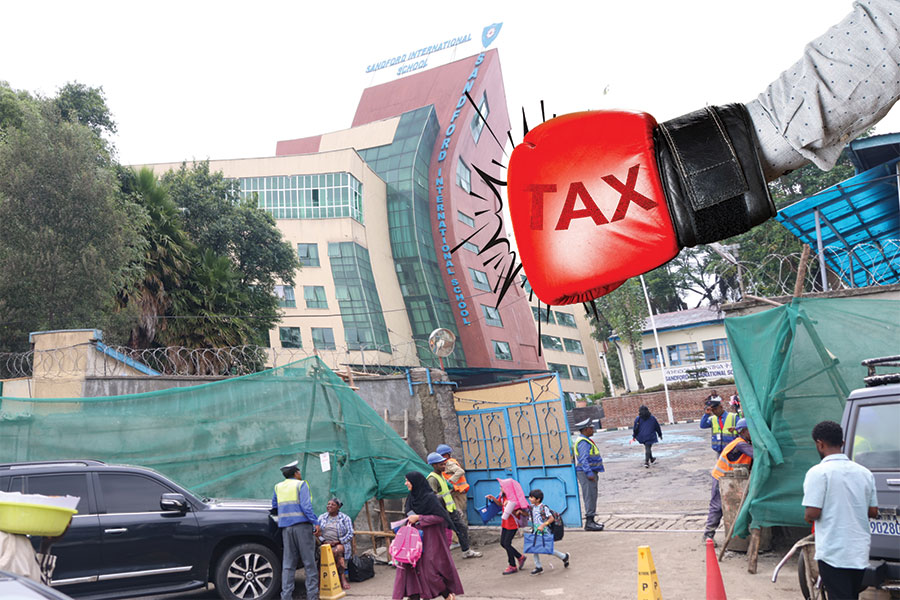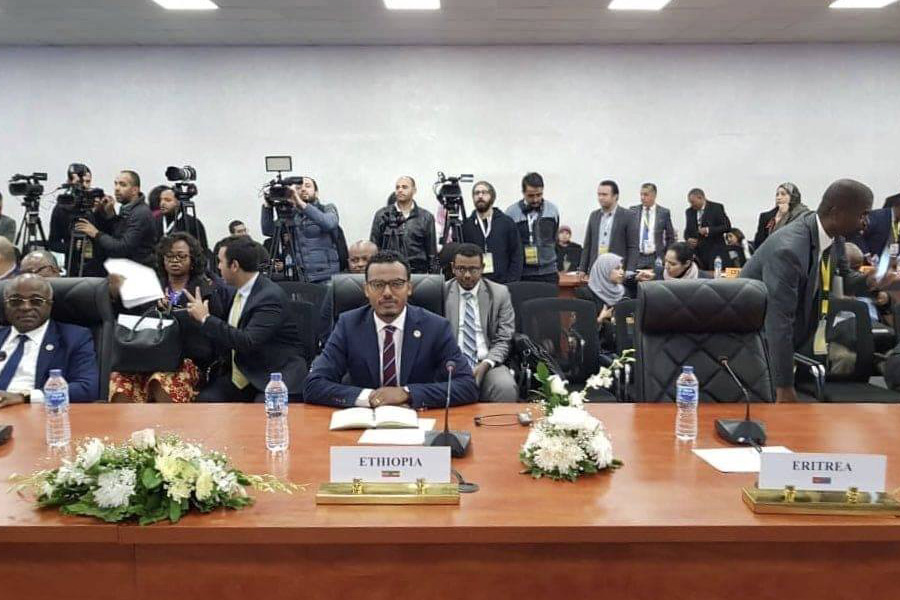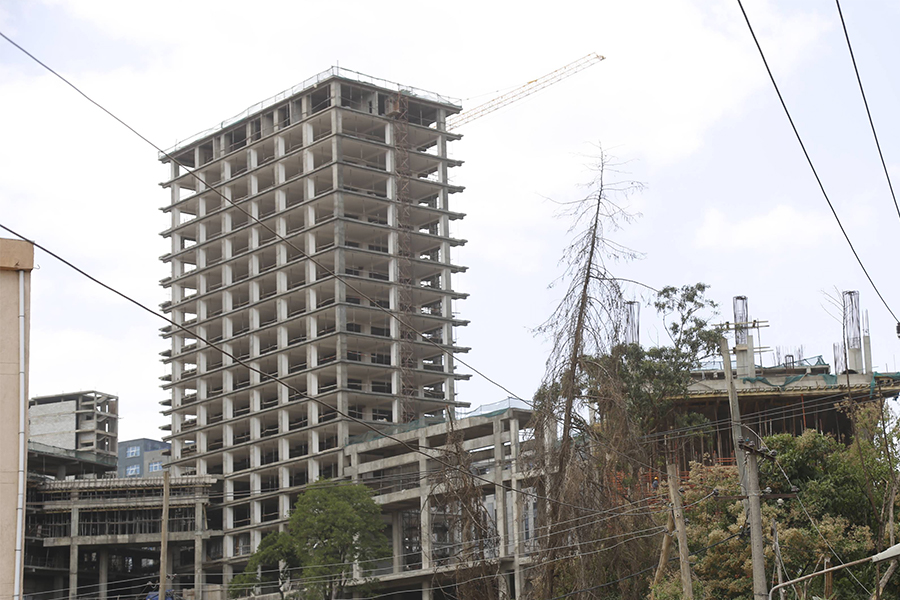
Radar | May 04,2019
President Sahle-Work Zewde's first address to the joint session of the two houses of parliament since she came to power signaled that the government's major direction for the current fiscal year will be ensuring national security and stability.
However, her speech overlooked the census, which is expected to be held this year, and the second Growth & Transformation Plan (GTP II), a national five-year plan that came into effect after getting approval from parliament.
On Monday, October 7, 2019, Sahle-Work appeared before the House of People’s Representatives (HoPR) and House of Federation (HoF) to report the government's major direction for the current fiscal year.
In her 28-page speech, the President mentioned the main achievements made by the reform initiatives introduced by the government on political and economic sectors, despite the internal displacement that stood at more than two million.
Currently, the number of displaced has declined to less than 100,000, according to the President. However, she did not mention that a census, which was planned to be conducted during the past fiscal year, has been postponed because of the displacements.
In March 2019, the Population & Housing Census Commission announced that the census that was scheduled to take place from April 7 to 28, 2019, has been postponed, because preparation and groundwork to conduct a reliable census had not been fully completed.
The postponement aims to give time for resettlement of people displaced from their villages due to inter-regional conflicts, according to the statement that was released by the Office of the Prime Minister.
Penal and commercial codes, which were legislated 60 years ago, as well as administrative law, will be legislated this year, according to the President.
She stated that the government will upgrade the capacity of security institutions to enable them to detect problems early and eliminate situations in a short time. This involves giving training to the federal police force based on reform studies.
According to the President, the coming national election will be based on three values. It will be free, democratic and acceptable; it would not repeat the mistakes made in the previous election, and it will ensure the participation of political elites as well as most of the people of Ethiopia.
“In order to achieve these three essential values, the initiative and readiness of the government alone are not enough," she said.
The active participation of the people of Ethiopia, political parties, media organizations, political elites and civic institutions play a major role in ensuring the success of the upcoming election, according to the President.
In addition to the national election, there will be referendums held under the parameters of these three values.
Asnake Kefale, (PhD) lecturer at Addis Abeba University's College of Social Sciences, agrees with the government’s plan to safeguard the country’s peace and security.
“Because of the current political instability, the emphasis given to peace and security is well-timed,” he said.
However, the expert believes that strengthening security is not enough unless the controversy between the political elites is solved through discussions.
“Peace and security couldn't be achieved by relying only on the security forces," he said. "Those in government bodies and the opposition should be able to solve their issues through discussions.”
Speaking about the economic reform, the President stated that the plans ensure macroeconomic stability, promote private sector participation in economic sectors and help to create an adequate number of jobs.
Beside the Homegrown Economic Reform Agenda, the government will control the illicit trade, inflation and promote agricultural productivity.
Guta Legesse, a lecturer at Addis Abeba University's College of Business & Economics says that the president had tried to touch on multiple sectors but failed to give adequate emphasis to the economic sector.
“The economic sector was not addressed in reference to the GTP II,” he said. “Though the president gave sufficient attention to monitoring and evaluating the justice sector, she overlooked a lot of issues when it comes to the economic sector.”
Strengthening the private sector is the other issue that was not given much weight, according to Guta.
In an attempt to achieve the goal of becoming a middle-income nation by 2025, the government had drafted a 15-year plan back in 2010 framed around the country’s sustainable development agenda.
The major objective of GTP II was rapid, sustainable & broad-based growth through enhancing the productivity of agriculture and manufacturing, improving the quality of production and stimulating competition in the economy.
Lower and middle-income economies are those which have a Gross National Income (GNI) per capita between 1,006 dollars and 3,955 dollars, respectively. Ethiopia’s GNI currently stands at less than 800 dollars, while average inflation was 15.5pc over the past decade.
Inflation is mainly seen on food items, and the government has a plan to import an adequate amount of basic food items.
To reduce the half a billion dollars it spent a year to import fertilizer, the government announced that it will construct a new fertilizer factory in Dire Dawa by signing a joint venture agreement with a company from Morocco.
The president said that to modernize farming, the government will make tax deductions to encourage farmers to buy the latest farming technologies.
The government aims to provide electric power to one million additional customers by expanding electricity infrastructure in 405 rural kebeles.
She also announced that in December of this year Ethiopia will launch its first satellite from its base in China. The satellite will transmit data on agriculture, forestation and environmental conservation.
On the new education road map, she stressed that quality should be considered when activities are taken to expand education. Balancing reach and quality of education is a principle that the new educational road map will address.
Mamushet Amare, leader of the All Ethiopian Unity Party and who has been imprisoned several times, is optimistic. However, he believes that the President has not disclosed planned activities by the government that failed to meet their objectives in the last fiscal year.
He further explained that currently many youth are being imprisoned without any evidence. Additionally, prisoners are not released after decisions allowing them to be released on bail are given by the courts.
PUBLISHED ON
Oct 12,2019 [ VOL
20 , NO
1015]

Radar | May 04,2019

Commentaries | Dec 30,2023

Commentaries | Mar 25,2023

Commentaries | Aug 03,2025

Fortune News | Oct 23,2018

Radar | Jul 13,2020

Radar | Mar 23,2019

Radar | Jan 15,2022

Radar | Aug 07,2021

Fortune News | May 23,2021

Dec 22 , 2024 . By TIZITA SHEWAFERAW
Charged with transforming colossal state-owned enterprises into modern and competitiv...

Aug 18 , 2024 . By AKSAH ITALO
Although predictable Yonas Zerihun's job in the ride-hailing service is not immune to...

Jul 28 , 2024 . By TIZITA SHEWAFERAW
Unhabitual, perhaps too many, Samuel Gebreyohannes, 38, used to occasionally enjoy a couple of beers at breakfast. However, he recently swit...

Jul 13 , 2024 . By AKSAH ITALO
Investors who rely on tractors, trucks, and field vehicles for commuting, transporting commodities, and f...

Nov 1 , 2025
The National Bank of Ethiopia (NBE) issued a statement two weeks ago that appeared to...

Oct 25 , 2025
The regulatory machinery is on overdrive. In only two years, no fewer than 35 new pro...

Oct 18 , 2025
The political establishment, notably the ruling party and its top brass, has become p...

Oct 11 , 2025
Ladislas Farago, a roving Associated Press (AP) correspondent, arrived in Ethiopia in...